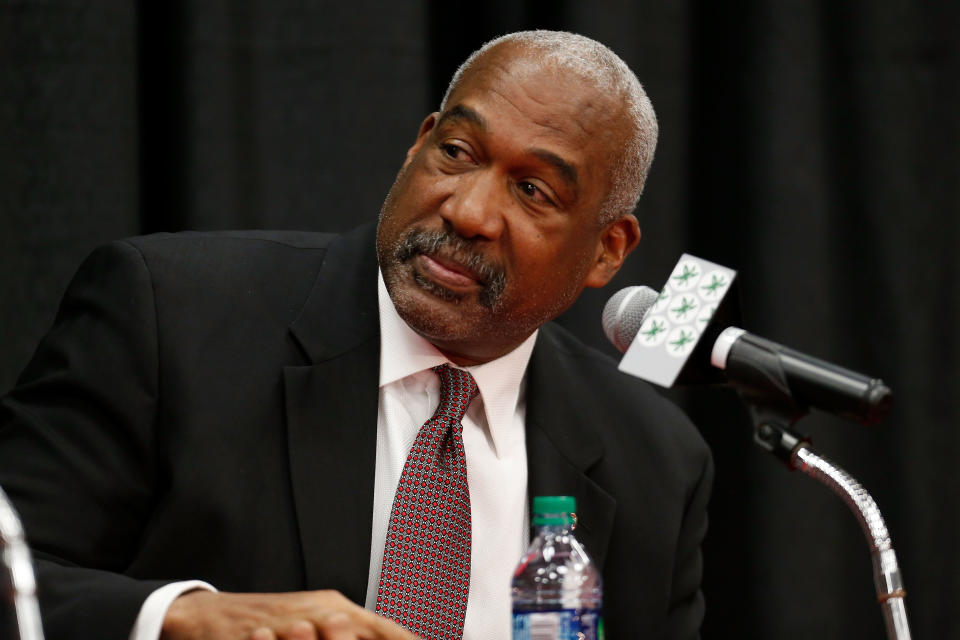Ohio State AD: California schools 'won't be members of the NCAA' if athlete-rights bill goes into effect

The bill that would potentially allow college athletes in the state of California to receive compensation based on their image and likeness has not been signed into law yet. But Ohio State athletic director Gene Smith is already thinking about future scheduling and the ramifications of NCAA membership.
The AD, who is a co-chair of an NCAA working group currently looking at possible adjustments to the governing body’s ban on allowing athletes to receive endorsements or sponsorship money, told USA Today this week that Ohio State wouldn’t schedule any California schools if the bill becomes law. Why? We’ll let him explain.
“If the California law goes into effect in ’23,” Smith said Tuesday, “and let’s say the NCAA legislation, how ever it emerges, doesn’t quite meet what California wants it to be and they continue to hold that law, who’s going to play (California schools)? We’re certainly not. They won’t be members of the NCAA. I think that’s going to be the problem."
We can’t imagine Ohio State would have any problem accepting a Rose Bowl bid against a California team after 2023 if the law goes into effect, however.
In case you were wondering, there are no California schools on Ohio State’s future non-conference football schedules.
Bill hasn’t been signed yet
The bill has passed through California’s legislature and is awaiting the signature of California Gov. Gavin Newsom, though Newsom has yet to commit to sign it. If Newsom signs it, the law would likely be more of a symbolic statement than anything else given that state laws and NCAA rules are two different things.
Smith added that he guessed that other schools in the NCAA would vote to eliminate California schools from the governing body because the bill could make the playing field “unbelievably unlevel.”
The NCAA has vociferously spoken out against the bill, even going so far as to call it “unconstitutional” without any examples of how allowing athletes to receive market-rate compensation in the form of endorsements goes against the United States Constitution.
The NCAA could also mitigate any potential effects of the California bill by having Smith’s working group recommend sweeping changes to the way athletes’ image and likeness rights are currently legislated.
That could be a longshot given Smith’s comments. But the bill first has to be signed by Newsom and there would be three years before it becomes law anyway. That’s a lot of time when you consider how far the push for fair athlete compensation has come in recent years.
– – – – – – –
Nick Bromberg is a writer for Yahoo Sports
More from Yahoo Sports:

